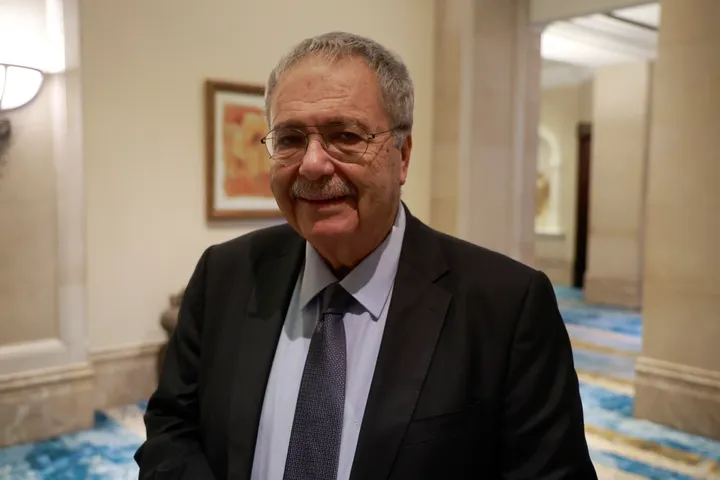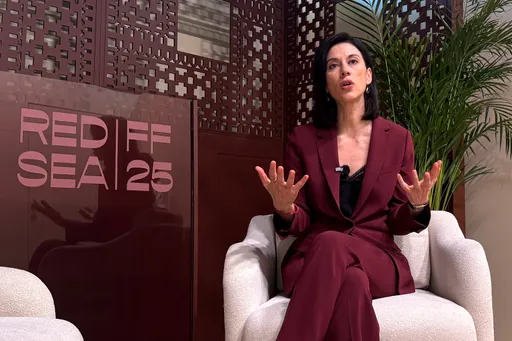In the small fishing village of Abdul Rehman Goth on the outskirts of Pakistan’s biggest city Karachi, fisherman and lifeguard Asif Baloch walks along the beach, scanning the shoreline for ghost gear that may have washed ashore.
On the clear beach, he spots two large fishing nets within 50 meters of him, tangled in cloth, plastic, seaweed and other odds and ends. From the corner of his eye, he sees children playing in the water, their mother sitting at a distance, keeping a watchful eye.
“Five years ago, none of us knew the dangers of ghost nets. If a net got caught in outcrops we would cut it loose and toss it into the water,” he says. “Even our shoreside was choked with trash; our feet would get caught in fishing nets and other litter, that’s how bad it was. Our village was unrecognisable.”
Ghost nets are abandoned, lost or discarded fishing nets at sea which pose a threat to marine life and the environment. If left ignored, they can result in sea animals getting netted as bycatch and consequently, ending up injured or dead.
Baloch went on to explain that “ghost nets are without discrimination and contribute towards ghost fishing”— a deadly cycle that repeats itself endlessly.
It goes like this: abandoned nets in the ocean catch marine/non-marine life which then either die or get injured. The longer the net drifts in the water, the more animals it catches. With time the dead animals weigh the net down causing it to sink to the bottom of the ocean. Once the dead animals decompose, the net resurfaces and the cycle begins all over again.
“Thanks to Olive Ridley Project (ORP) Pakistan, we are conscious of our actions and our beach and water are once again clean and functional.”
ORP is an international NGO with a mission to protect sea turtles and conserve their habitat through rescue and rehabilitation. The 22-member team currently has bases in the Maldives, Oman, Pakistan and Kenya.
In 2016, ORP came to Pakistan to work towards turtle conservation and “one of the ways we do that is by removing ghost nets from the sea and beaches, where turtles nest and lay eggs,” says Usman Iqbal, ORP Project Manager.
He explains that these abandoned nets jeopardise the safety of turtles as well other marine and non-marine life, for instance, coral reefs and birds. Plus, they contribute to the plastic pollution in the ocean.
The charity started its operations in one of the oldest fishing villages in the country, Abdul Rehman Goth and has since expanded to surrounding areas.
Earning and living by the sea
The team dive underwater to recover ghost nets and collect those washed ashore. So far they have retrieved over 5216kgs of ghost nets in Pakistan.
“Some days we pull out 5kgs of ghost nets, other days the number goes up to 50kgs,” he adds.
Once the nets are collected, the local women repurpose them into bracelets and dog leashes. The process of recovering and cleaning the nets takes two days, and to weave them into leashes and bracelets takes a few hours.
“We have sold some 459 leashes and 418 bracelets, raising a little over PKR0.5 million in the last three years,” he says, grateful that “of the 5000+kgs of ghost nets collected, only 200kgs remain”.
The funds received are given to the local women as they are the artisans behind the merchandise – providing the villagers with an additional source of income.
The team hopes to expand their repurposed product line and is looking at grocery bags and other jewellery items. Presently, however, “funds are a challenge because we are a small team, plus, environmental changes and the weather cause poor visibility underwater and give us a small window to dive throughout the year,” says Iqbal.
This limits the team to dive only between late October and mid-March.
To stay up to date, Iqbal makes a trip to the village twice a week and the locals welcome him with open arms. And while ORP has comfortably settled into the local scene, it was not all smooth sailing at the outset.
“When we initially came we needed to gain the trust of the village folk, which took the most time because they viewed us, city people, as self-serving. Nevertheless, we stayed consistent and came to the village every week [to prove our dedication],” he adds
It didn’t take long for the locals to realise that ghost nets cause them harm too. “They finally understood that they are earning and living by the sea and if they take care of it, they are taking care of themselves. Now they trust us and are appreciative of our help and cause,” he says.
Iqbal, however, is quick to add that the fisher people are not always responsible for ghost nets, “at times the weather plays a role and other times, the net gets stuck on rocky outcrops due to which the fishermen have to cut the net loose or his boat can capsize. No fisherman wishes to lose their net, it is an expensive investment.”
He stresses that ghost nets are just as much of a nuisance for fishermen because they do not decompose and affect their livelihood. “The decaying animals caught in ghost nets cause other marine life to swim away, preventing good catch in that spot,” he explains.
To limit the chances of ghost nets, ORP hosts workshops and seminars to guide and educate local fishermen on the topic. They are taught to label their gear and identify markers and hot spots from where their net can be retrieved.
“Now, local fisherfolk don’t leave their net intentionally, unless the weather is working against them and/or their life is at stake,” says Baloch. “They bring back damaged nets, if possible, and are careful about leaving nets on the beach so they cannot be washed out to sea.
“They are also particular about the net they use, if it is flimsy or in poor condition, they don’t fish with it,” he adds.
Having worked with ORP for five years now, Baloch acknowledges that this change in mindset took a considerable amount of time and they have come a long way since.
As the ORP Field Operator, he plays an active role in spreading the message among other fishermen to inform them of the threat ghost nets pose and how, in the event of losing their net, they, too, can follow the necessary steps to recover it.
At the moment, the organisation has managed to broaden its reach to the majority of the Kemari coastline, educating local fishers one village at a time.
Despite all the efforts, Iqbal is well aware that the problem of ghost nets will never truly be solved as thousands haunt the oceans worldwide.
“There are about 640,000 tonnes of ghost nets globally,” he estimates. . “Though, no one really knows the actual figure since numerous ghost nets are added daily to the ocean and there is no record of how many have been lost and how many are being removed. It is likely that the amount goes up to 1000s of tonnes.”
























